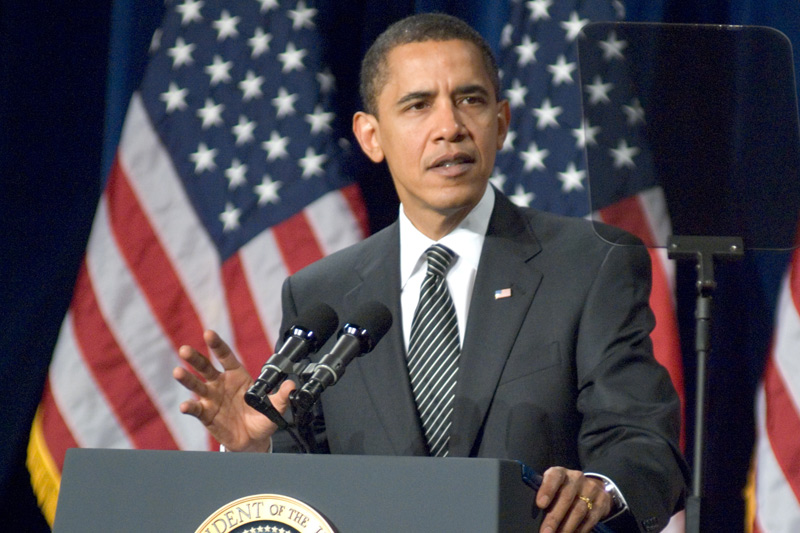By Meagan Clark - President Obama’s proposed 2015 fiscal budget released this week would repeal over $4 billion a year in tax subsidies to the oil and gas industry and give more to renewable energy, “clean coal” and natural gas.
Congress will likely enact little of Obama’s budget into law, but the requests reveal the president’s policy priorities, a sort of White House wish list that may influence congressional Democrats and those campaigning ahead of midterm elections.

Obama requested $27.9 billion to fund the Department of Energy, a 2.6 percent increase from the enacted 2014 budget. He requested $28.4 billion for the department in 2014. More than a third would go to energy and science initiatives, including a climate action plan Obama announced last summer to reduce carbon emissions.
The Office of Energy Efficiency and Renewable Energy would receive $2.3 billion under the budget, a 20 percent increase from 2014, with funds to renewable energy increasing 16 percent.
Funding for the Fossil Fuel program would decrease from last year’s levels.
“As the nation continues to pursue clean energy technologies that will support future economic growth, it should not devote scarce resources to subsidizing the use of fossil fuels produced by some of the largest, most profitable companies in the world,” the budget states.
Fossil fuel-supporters say subsidies to renewable energy producers like wind and solar are wasteful, and Obama’s “all-of-the-above” energy policy doesn’t pan out in his budget because they say support for oil, gas and coal is lacking.
Thomas Pyle, president of the Institute for Energy Research, said Obama’s budget would hamper affordable and reliable energy sources and prop up expensive and unreliable ones. The institute calls Obama’s 2015 budget “a masterpiece of energy wastefulness.”
“In his budget, the President once again calls for the expansion and permanent extension of giveaways for the wind and solar industries,” Pyle said in a statement. “These centuries-old technologies should be able to stand on their own without lavish taxpayer support.”
Jack Gerard, president and CEO of the American Petroleum Institute, said Obama’s budget adds to a deficit of new ideas in the oil and gas sector, instead recycling earlier calls for tax hikes that would hurt government revenue, domestic energy production and job creation.
"The average oil and natural gas job pays about seven times the federal minimum wage, and the natural gas renaissance has led to lower CO2 levels," Gerard said in a statement. "Higher energy taxes would set back the president's own goal of addressing income inequality and undermine his ability to achieve his climate goals."
The oil and gas industry currently pays the highest effective tax rate, 44 percent, compared to the 30.2 percent of other corporations. Obama’s budget would increase taxes on the oil and gas industry and coal industry that would add up to $48.8 billion over a decade.
Obama is also calling for an expansion of production tax credits to renewable energy producers like solar and wind and wants to make these tax credits permanent.
Rob Gramlich, senior vice president of public policy at the American Wind Energy Association (AWEA), welcomes the proposal. In 2012, AWEA sent a letter to congressional leaders accepting a six-year phase-down of a production tax credit that will give wind producers 90 percent of the credits in 2014.
"Policy stability is critical to promoting domestic manufacturing which keeps people employed and brings down our costs,” Gramlich said Friday. “We are pleased the president has proposed providing stability for the PTC in this budget."
